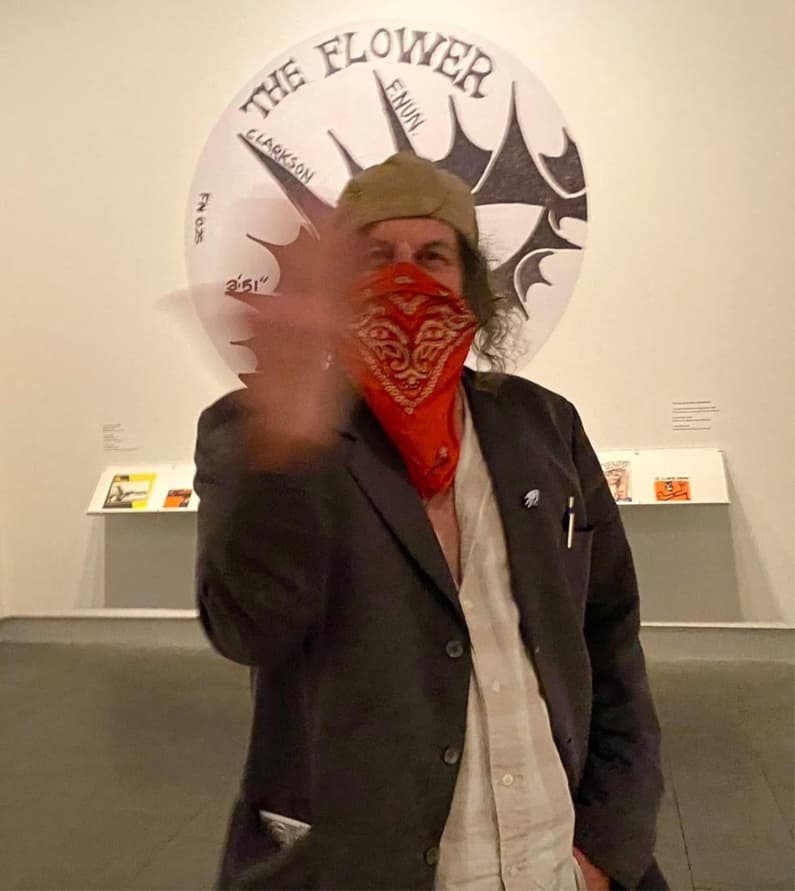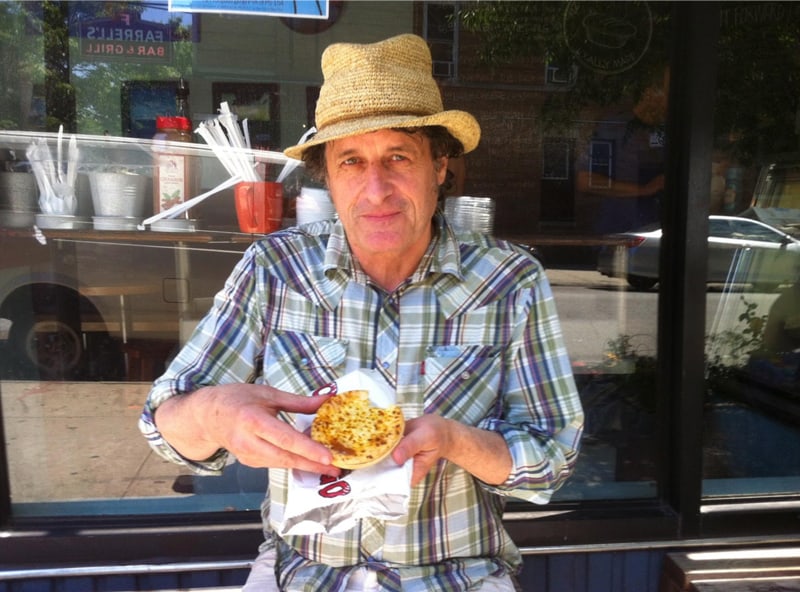
Hamish was unconventional in the best sense, from the way he lived to the way he created music and his art. He kept outside of the system – The Clean were the first of the Flying Nun generation to record their own songs – on a Revox B77 in Dunedin as early as 1980. With Hamish, creating always came first. He loved music so deeply he saw it as a life force, a force for change, for joy. It’s often overlooked how political The Clean, and Hamish in particular, were. The entire way the band operated was political – completely outside of the major recording industry. They would never have a bar of it. They had an attitude.
Hamish remained a fierce critic of conservatism and capitalism, he saw the way it could crush and drain people. Sometimes his lyrics were comical, and you could easily miss what he was saying – the song ‘Side On’ is a classic example of that…the words sung in Hamish’s best mock Kiwi accent…
‘Side on…I go side on…
A brick wall… I see a brick wall…
It’s the NZ trip…it’s the button-down lip
It’s bread and butter it’s father and mother…
I call it the wall…
I’m a sucker I’m not a billy goat
I don’t want to hurt my head
I go side on…’
“Twist Top” is another poke in the eye of the grey dull life, and ‘In the Dream Life U Need a Rubber Soul’ is even more on point about the merciless grinding nature of the working life. All messages wrapped in the hookiest pop tunes. He might have been poking the borax, but he wanted you to dance too.

Over the years I spent brief periods with him in Dunedin, Christchurch, and New York – the places that were important to him. Our last adventure was a couple of days together in October 2021 in Christchurch. We went for a walk in Lyttleton; Hamish disappeared for a few minutes, and returned with a book for me – Ans Westra’s notes on the country we live in. It was typical of him that he had little money, but he would buy a gift, and one that he intuitively knew was right for you. During his later years he was often given records as payment for recordings, and he would give them away instead of selling them. This could frustrate those closest to him who knew he could do with the money, but it was part of his philosophy that money should not have such importance; it was his snub to the overbearing nature of capitalism. He had the mind of a protestor, more than that of a rock star.
The measure of the life is in what he created and how he influenced the culture. His impact was monumental; he altered the cultural landscape. He’s there at the foundation of indie rock, and indie rock was way better for his presence. His was a brave life. It had its rewards, and it had its costs. He exasperated people at times, especially those closest to him; he could be uncompromising. But the ledger is in his and our favour. He was the multi-coloured outsider who crossed into popular culture and left us much to be inspired by, to remember to live a little more adventurously, more creatively, and to remember to always turn it up.
